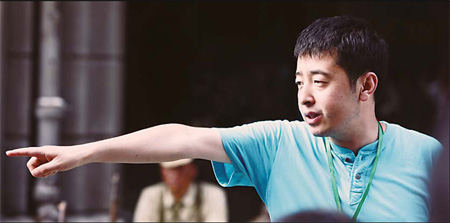The other side of 'dazzling' Shanghai
 |
| Jia Zhangke is a leading figure of the Sixth Generation movement in Chinese cinema. |
Jia Zhangke, a leading figure of the Sixth Generation movement in Chinese cinema, has brought his talent to the Expo 2010 Shanghai.
The director won the coveted Gold Lion at the 2006 Venice Film Festival for the movie Still Life. On July 2, he released a documentary, I Wish I Knew, to celebrate the opening of the Expo and give an alternative interpretation of the city's past.
Jia attempts to expose the city during an age of turbulence through the experiences of eight people.
"People outside Shanghai only see a city that dazzles others with its fast-growing economy. Scenic films of Shanghai only depict the city as if it is brand new," said Jia. "Therefore, many people think they know the city very well, but the truth is, they don't at all."
The director is not new to Shanghai. For him, the story of the city lies in the lives of the residents here. To make the film more convincing, Jia spent two years interviewing about 100 people all over China and found 18 people to tell the changing history of Shanghai through events in their own lives. Celebrities from all walks of life, such as Chen Danqing, a renowned oil painter; Hou Hsiao-Hsien, an award-winning film director and a leading figure of Taiwan's New Wave cinema movement; Du Meiru, daughter of the well-known Shanghai ganster Du Yuesheng; and Han Han, the controversial young writer, all contribute to this must-see movie.
"Although the heroes I shot in the film are all celebrities, they are put in daily settings. This helps to achieve the focus that I have long been seeking," said the director.
"People are the most important part to every city. What I am doing in the film is not preaching history, but rather showing the difficulties that one person will go through during the ups and downs of the society, be him an ordinary worker or an elite," said Jia. "Respect is shown for personal memories."
The director is brave enough to touch upon sensitive topics such as the relationship between the Chinese Communist Party and the Kuomintang; the parting of relatives during the turbulent year of 1949; and the Cultural Revolution. To him, listening to the stories of the people was the only way to explore the past.
"We have broken through many restraints in the film by showing the personal feelings of people. We have not evaded the sensitive topics such as the Cultural Revolution. So the film is much more than just a film to promote the Expo," Jia said.
 0
0 






